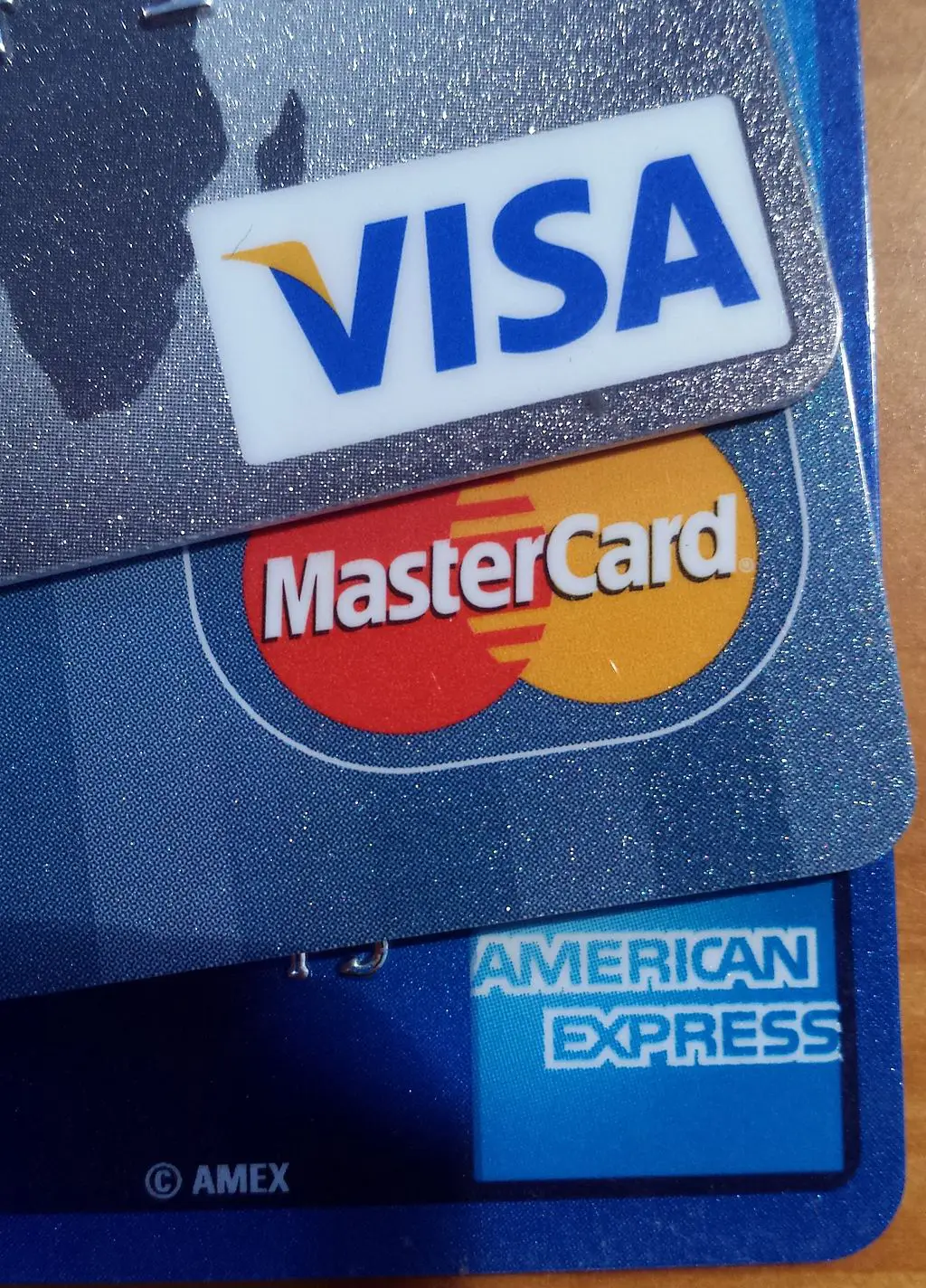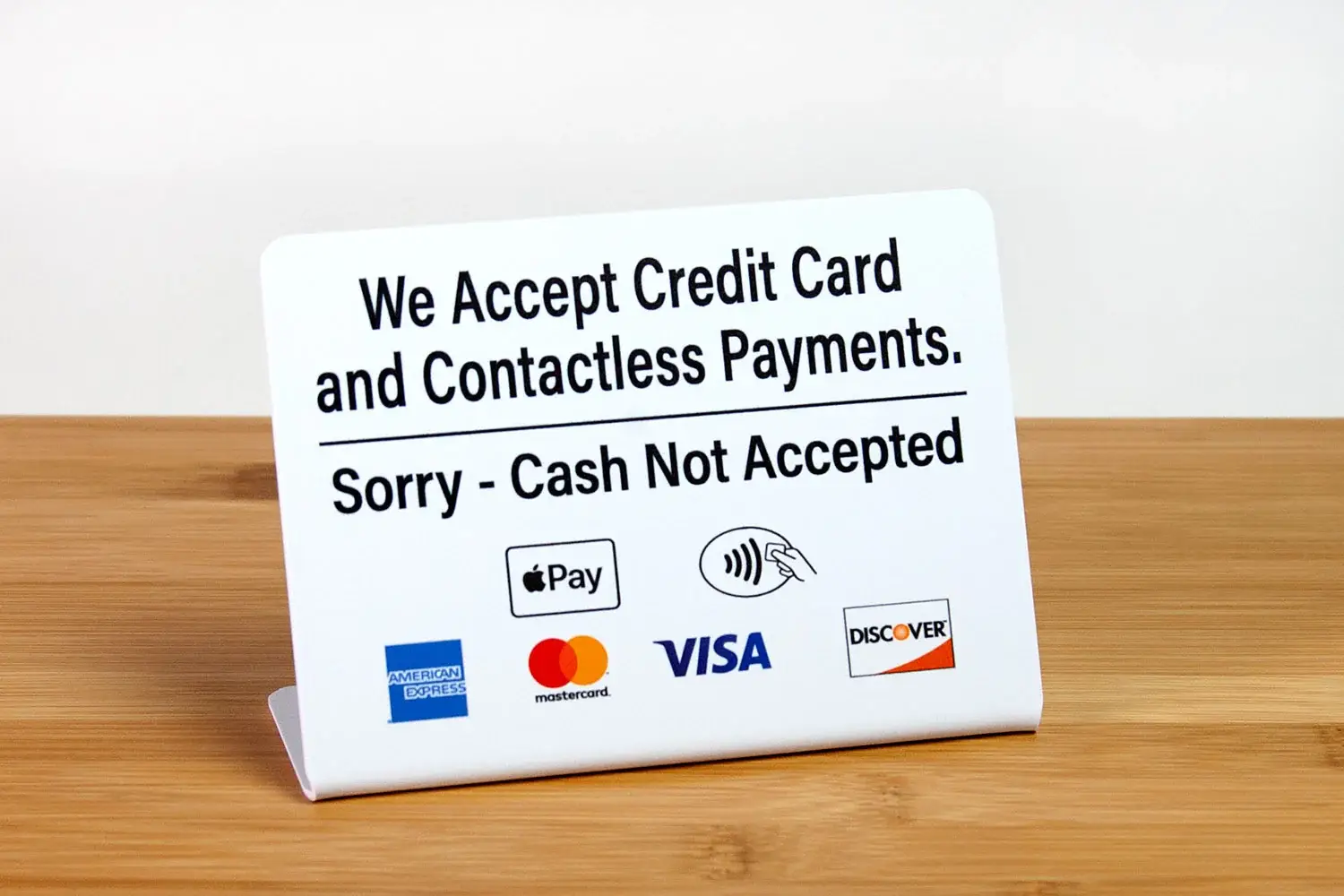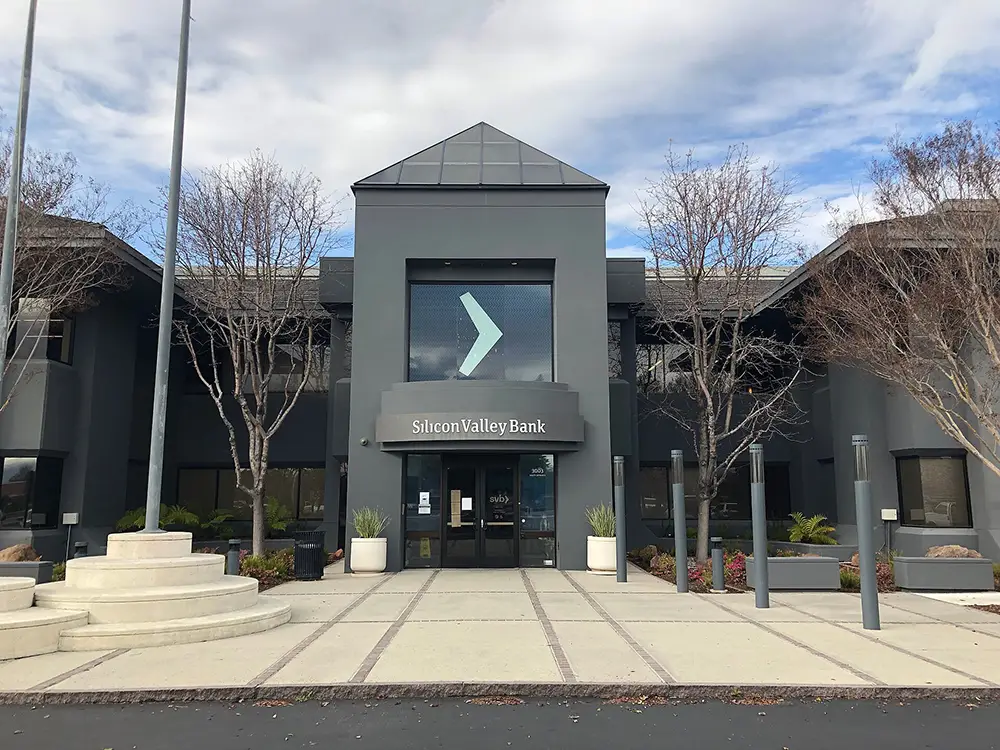The Problem With Credit Cards
Let's take a step back.
We've seen how Bitcoin is a secure, "industrial-strength" system for recording payments onto a shared ledger which can't be manipulated by attackers.
Bitcoin transactions can also be expensive and slow.
So maybe we can just use Bitcoin for transfers that need high security, for example, international bank transfers? Transfers for which it doesn't matter if the payment might be slow, because security and durability are so much more important?
The problem is, our current system for smaller, high-frequency payments is broken.

In most places in the world, we pay with credit cards.
Credit cards and debit cards aren't money and don't actually transmit money from one person to another. Instead, they transmit credit, also known as a "loan" or an "IOU". Let's look at a $5 credit transaction.
Let's say a buyer buys a coffee for $5 with a credit card. From the perspective of the seller, she has the illusion that $5 has entered her bank account. But this is not the case: In actuality, a complex web of debt has been created.
The buyer promises her bank that she will pay the bank $5 (say, at the end of the month), and then the bank promises that they will pay the seller's bank the same amount. The buyer's bank might "settle up" with the seller's bank every night, or every week, as is convenient. But, at the time of the transaction, no money actually changes hands. It's just a bunch of debt.
The problem with credit

We switched from using money, to using debt, without anyone noticing
It's happened slowly, but almost everyone has started seeing more "cash not accepted" signs like the one above. As more and more transactions switch to credit, instead of cash, this system becomes more entrenched, and it presents a number of severe issues:
The financial industry is gobbling up our economy
Estimates vary, but a mainstream view is that, in the United States, as a percentage of Gross Domestic Product, the financial industry has grown from about 2% (in 1947) to about 9% (2010) of GDP.
That's 9% of everyone's earnings, supporting an extractive industry which does not improve people's lives.
The use of credit leads to higher prices
Previously, when we could pay with cash or check, when we paid a merchant, all of that payment went to the merchant.
With credit cards, merchants are paying a ~3% tax on all incoming payments. But that's only the beginning.
Prices for everything from houses, to cars, to education, to medical care are vastly inflated through the use of credit. The use of loans greatly expands the money supply, and in response, sellers have to raise prices to keep up with demand.
The financial industry sells our data
If you examine your credit card agreement, you will find that your bank retains the right to track all of your payments, and sell your information to the highest bidder.
And banks do exactly this: Your transaction records are valuable. What was once privately held information, for example, in a personal checkbook or cash ledger, is now held by a for-profit third party, who will actively work against your economic interests, in order to extract more profit.
Banks prey on the disadvantaged
In the United States, there are a small number of organizations (Experian, Equifax, TransUnion) which keep a sort of "dossier" on all American adults.
These organizations are unelected, are totally unaccountable to the democratic process, and freely transact with people's banks to collect and monitor everyone's financial activity.
If you fall afoul of any bank's rules, they can report you to one of these organizations, who will modify your "credit score". This credit score can, and will, be used in a extraordinary number of circumstances, for example, when apply for a job, buying insurance, buying a home or car, and more.
Low credit scores severely restrict a person's ability to obtain credit, and since credit is required in so many parts of modern life, those who have poor credit scores, namely, poor people, are at the greatest disadvantage.
Credit cards rates and fees are unfair
Rich people can get "cash back" credit cards, allowing them to earn up to 2% refunds on their purchases. Poor people can't get these cards, so their purchases are effectively subsidizing rich people's purchases.
In the same way, those who can least afford to pay their credit card bills are hit with the highest interest rates, further increasing the risk that they will go into debt.
De-banking is a constant risk
As banks become ever-bigger and consolidate, the problem of "de-banking", which is when a bank cancels your account, gets ever-worse. A bank at any time can choose not to serve you, and you then lose access to the credit which allows you to participate in commerce.
Very small payments are impossible
Have you noticed that when merchants switch to a "credit cards only, no cash" policy, that the merchant's prices tend to rise? Credit cards' high fees make any purchases totalling less than about $3.00 uneconomic for the seller. So prices have to rise just to enable the credit system to work.
But there is a more fundamental problem
You might not think about it a lot, but democratic societies generally maintain a clear line between things that citizens are "required" to do, and things that are "optional" for them to do. Let's look at how this has changed recently.
Required vs. optional, circa 1984
| Required |
|---|
| Go to school until age 16 |
| Pay taxes |
| Obey the law |
| Drive safely |
| Optional |
|---|
| Buy things that you want |
| Go to college |
| Pay fees to banks |
| Share transaction records with banks |
In 1984, an American adult could have lived fairly easily without any relationship with a bank.
To send a payment by mail, she could use Postal Money Orders, a simple and secure system, where there is no need to use bank as an intermediary. For in-person transactions, she could always use cash.
Required vs. optional, circa 2024
| Required |
|---|
| Pay taxes |
| Obey the law |
| Drive safely |
| Pay fees to banks |
| Share transaction records with banks |
| Optional |
|---|
| Buy things that you want |
| Go to college |
| Pay fees to banks |
| Share transaction records with banks |
Quietly, and without the opportunity for anybody to cast a vote about the issue, we are now required to maintain a relationship with a bank. We can no longer attend a concert, buy a plane ticket, or in many cases simply buy food, without a credit card, and a credit card necessitates a commercial relationship with a bank.
You are required to get a bank account, and a credit card, and the number of banks is decreasing every year, due to industry consolidation. At the same time, bank fees are ever-increasing. The banks have us "up against a wall", and they can basically demand any level of fees that they want.
You may have seen advertising for banks, so you might think that they want your business -- but make no mistake: They are competing for "market share" only. They know you have no choice, that you have to choose a bank, and you have to pay whatever fees that bank happens to demand.
The problem with banks
So, it's problematic that we are all compelled to do business with a large bank, even if we prefer not to. But that's only the beginning of the problem.
Fractional reserve banking
When you deposit money at a bank, you might think they somehow keep the money safe for you. This is not what happens.
Instead, banks loan out the vast majority (85%+) of their deposits. This is the "fractional reserve" system: Banks only keep a "fraction" of their deposits as a reserve. This allows them to maximize their profits, and in turn allows their executives to own private planes, and play a considerable amount of golf. That might seem nice, but this leaves these banks susceptible to something called "bank runs".
"Bank runs" are when all (or most) of the customers of a bank get nervous, and try to withdraw all their money, all at the same time.
What should happen at this point is that the bank should go out of business, and the owners of the bank should lose a lot of money, and the people who deposited their money at the bank should learn a lesson about who they should trust, versus who they should not trust.
Unfortunately, this isn't what happens, at all.
The bailout of Silicon Valley Bank
Every year, banks goes out of business.
There have been hundreds, probably thousands of bank runs in the last century. Let's just look at one recent example.
In March of 2023, a bank in Northern California, Silicon Valley Bank, suffered a bank run.

Over the course of a couple days, the 8th and 9th of March, 2023, rumors that Silicon Valley Bank was going to go out of business spread over the internet, and in response, depositors clambered to quickly withdraw their funds.
The bank ran out of money, because, due to the risky "fractional reserve" system, they weren't actually keeping their depositors's money in a safe way, instead, they had loaned the vast majority of it out to various rich people and tech companies.
On March 10th, 2023, the U.S. Government stepped in and gave everyone their money back. This is called a "bailout".
Note that, when other companies fail -- let's say, a gas station in your neighborhood, or a local restaurant -- the U.S. government does not get involved to save the business.
This is not the case with banks.
In the case of banks, not only do bankers get to make a huge amount of money, but, if they mess up, the U.S. Government (financed through taxes, and enormous amounts of debt), makes them whole again.
Following this bailout, (just like all other bailouts), The U.S. Government, and the bank, claimed that the public would not have to pay for this bailout, but almost nobody believed that.
Not only will the fees now increase at your bank (because U.S. banks all share the same government-run bailout fund, the FDIC), but there is another, more insidious way in which you will pay.
When the U.S. bails out banks during a bank run, this creates inflation.
Bailing out banks leads to inflation
To understand how bank bailouts lead to inflation, let's posit the existence of TechWizzaCorp, a company that deposited $10 million in working capital at Silicon Valley Bank.
TechWizzaCorp knows that Silicon Valley Bank practices "fractional reserve" banking, so they know that these deposits could be a severe risk, however, after a hundred years of bank bailouts, they trust that, even if the bank goes out of business, the U.S. taxpayer will end up reimbursing them.
So, as we said, TechWizzaCorp deposits $10 million in Silicon Valley Bank, and doesn't worry much about it.
TechWizzaCorp is financed through venture capital and other risky systems of indebtedness. It has raised a lot of money, so it can spend lavishly. At the TechWizzaCorp offices in midtown Manhattan, the 100 employees routinely order lunch from local restaurants, for about $50 per person, totalling to a $5,000 daily lunch bill.
There are so many companies like TechWizzaCorp, fueled by debt, that the demand for delivered lunch in midtown Manhattan is so strong, that the local restaurants can barely keep up with demand.
There is so much demand for food delivery in midtown Manhattan, in fact, that the local restaurants have raised their prices by 20% this year.
This sounds great, because maybe the restaurants can make more money, but the problem is, that the restaurants' costs have also increased by 20%, so really prices are just going up for everyone, and no one is happy about that.
This is the inflation cycle:
The way to break this cycle is well-known. The economy has to "cool down".
Put another way: Companies that are inefficient, that are overspending, that aren't being careful with their money: They need to go out of business. This will reduce demand, thus slowing down the inflation cycle.
To break the inflation cycle, this is what should have happened:
- Silicon Valley Bank goes out of business. Executives discontinue playing golf.
- TechWizzaCorp's deposits at Silicon Valley Bank are wiped out.
- TechWizzaCorp goes out of business.
- TechWizzaCorp, now out of business, no longer spends $5,000 per day on lunch.
- Local restaurants see reduced demand, and therefore put less pressure on local labor, food, and materials markets.
- Prices stop going up so fast, or maybe go even down.
Unfortunately, because a bank was involved, this did not happen. In fact, the opposite occurred.
- The U.S. government assumed responsibility for Silicon Valley Bank's deposits.
- The bank's executives continued playing golf.
- TechWizzaCorp carried on as before
- TechWizzaCorp continued to spend $5,000 per day on lunch.
- TechWizzaCorp learned that they don't need to be careful in their choice of bank.
- Bank executives (once again) learned that they are free to practice a risky "fractional reserve" strategy, and if something goes wrong, the U.S. Government will save them.
- Inflation continued to surge.
So how can we replace credit and banks?
Good question. Bitcoin is the solution, but first let's take a fun little detour, to the world of Altcoins.
📚 Recommended Reading
"Broken Money: Why Our Financial System Is Failing Us and How We Can Make It Better" (amazon, lynalden.com)